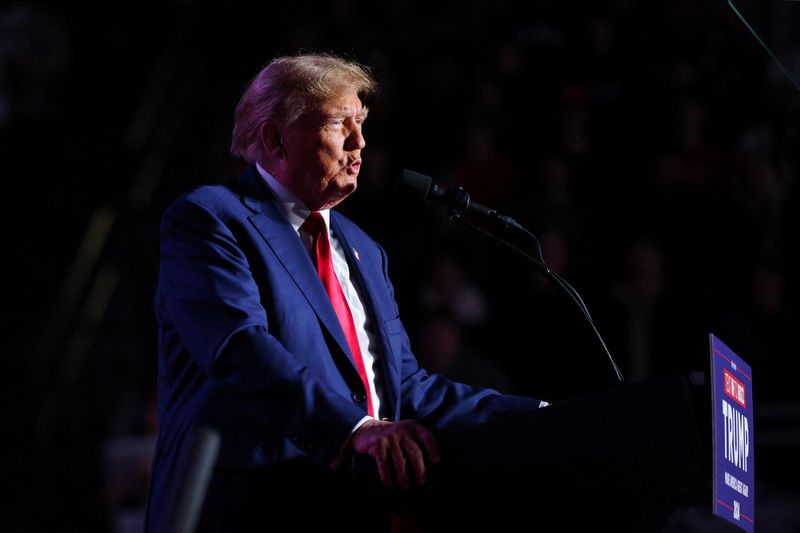By Nathan Layne
DURHAM, New Hampshire (Reuters) – Donald Trump, the Republican presidential frontrunner, said on Saturday that undocumented immigrants were “poisoning the blood of our country,” repeating language that has previously drawn criticism as xenophobic and echoing of Nazi rhetoric.
Trump made the comments during a campaign event in New Hampshire where he railed against migrant crossings at the U.S.-Mexico border, which hit new highs in September. Trump has promised to crack down on illegal immigration and restrict legal immigration if elected to a second four-year term in office.
“They’re poisoning the blood of our country,” Trump told a rally in the city of Durham, adding that immigrants were coming to the U.S. from Asia and Africa in addition to South America. “All over the world they are pouring into our country.”
Trump used the same “poisoning the blood” language during an interview with The National Pulse, a right-leaning website, that was published in late September. It prompted a rebuke from the Anti-Defamation League, whose leader, Jonathan Greenblatt, called the language “racist, xenophobic and despicable.”
Jason Stanley, a Yale professor and author of a book on fascism, said Trump’s repeated use of that language was dangerous. He said Trump’s words echoed the rhetoric of Nazi leader Adolf Hitler, who warned against German blood being poisoned by Jews in his political treatise “Mein Kampf”.
“He is now employing this vocabulary in repetition in rallies. Repeating dangerous speech increases its normalization and the practices it recommends,” Stanley said. “This is very concerning talk for the safety of immigrants in the U.S.”
In October Trump campaign spokesperson Steven Cheung had dismissed criticism of the former president’s language as “nonsensical,” arguing that similar language was prevalent in books, news article and on TV. Cheung did not immediately respond to a request for comment about Trump’s remarks on Saturday.
(This story has been corrected to say Jason Stanley, not Jonathan Stanley, in paragraph 5)
(Reporting by Nathan Layne; Editing by Daniel Wallis)



